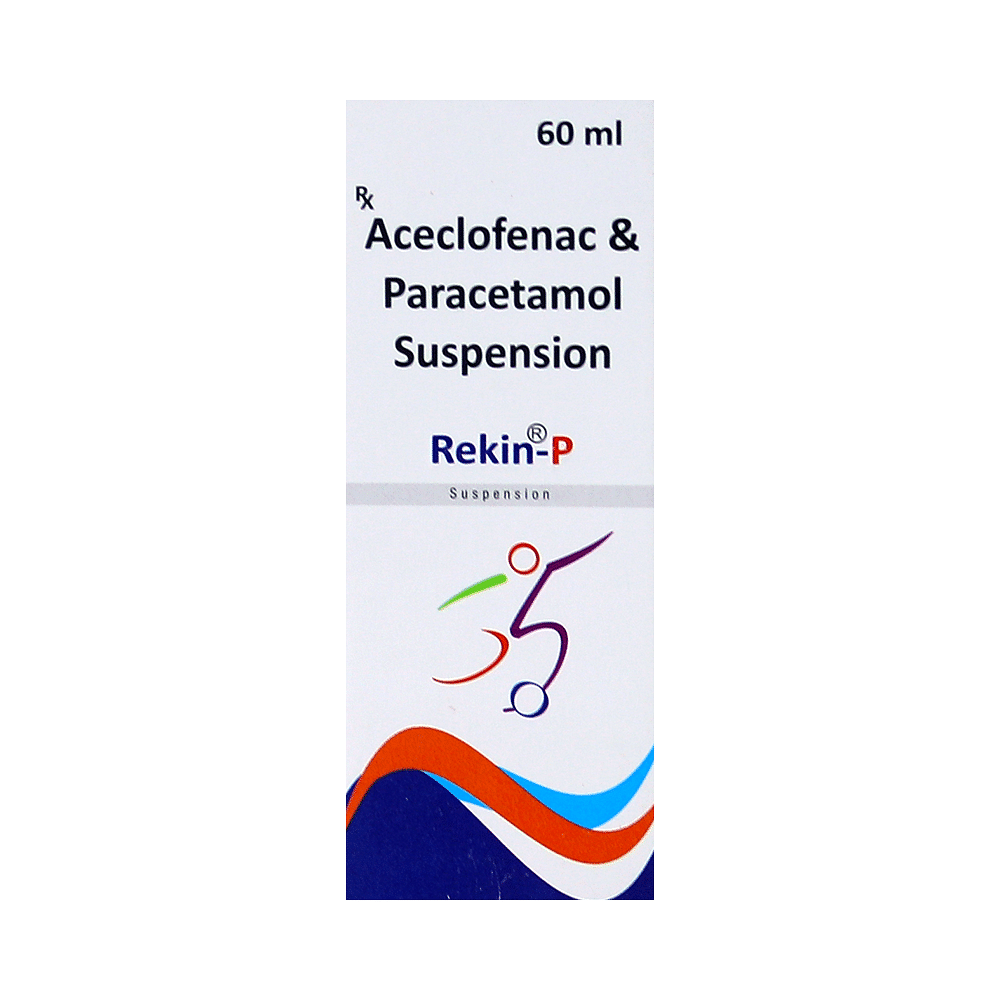
Barropar P Oral Suspension
Manufacturer
Barlis Lifesciences Pvt Ltd
Salt Composition
Aceclofenac (50mg/5ml) + Paracetamol (125mg/5ml)
Key Information
Short Description
Barropar P Oral Suspension helps lower body temperature (fever) and reduce pain and inflammation (redness and swelling) both in infants and children.
Dosage Form
Oral Suspension
Introduction
Barropar P Oral Suspension is a medication that helps to lower body temperature (fever) and reduce pain and inflammation (redness and swelling) in infants and children. It is available in the form of an oral suspension.
Directions for Use
Give this medicine after food to avoid abdominal discomfort in your child. Maintain a log of your child's temperature. If you do not see any improvement, contact your child's doctor for advice.
How it works
Barropar P Oral Suspension comprises two active ingredients: Aceclofenac and Paracetamol. These medicines work by blocking the action of chemical messengers responsible for pain, fever, and inflammation (redness and swelling).
Quick Tips
Give this medicine after food to avoid abdominal discomfort in your child. Maintain a log of your child's temperature. If you do not see any improvement, contact your child's doctor for advice. Keep a track of the dose and the frequency in which you have given this medicine to your child. This will help prevent overdosing. Practice self-care tips like giving plenty of fluids to your child, giving a balanced diet, encouraging optimum sleep, and stopping the medicine and consulting your child's doctor in case of allergic rash or stomach pain soon after taking this medicine.
Related Medicines

Dolbrex-Kid Oral Suspension

Aece-P Oral Suspension

Rekin-P Oral Suspension

Veto A Oral Suspension

Acticlo P Oral Suspension

Aeroace-P Oral Suspension

Kenfenac P Oral Suspension

Alvinac P Oral Suspension

Acecdoz Kid Oral Suspension

Acevir-P Oral Suspension
Frequently asked questions
Can I increase or decrease the dose of Barropar P Oral Suspension for my child by myself based on the severity of illness?
No, it is not recommended to change the dosage of the medicine without consulting a doctor. While increasing the dose may lead to toxicity, decreasing it could result in symptom recurrence. Therefore, please speak to your child's doctor if you have any concerns about the dosage.
How much Barropar P Oral Suspension should I give my child?
The dosage of Barropar P Oral Suspension is determined by a doctor based on your child's condition and weight. Always follow the prescribed dosing schedule for optimal safety and symptom resolution.
How should Barropar P Oral Suspension be stored?
Store Barropar P Oral Suspension at room temperature, in a dry place away from direct sunlight or heat. Keep all medicines out of reach and sight of children to prevent accidental ingestion.
Can all children receive the same dose of Barropar P Oral Suspension?
No, dosage for Barropar P Oral Suspension varies depending on a child's age and weight. The prescribed dose is determined by a doctor based on these factors. This dosage can even change as your child grows older. It is crucial to never administer any dose of this medicine without first consulting a doctor.
When will my child feel better?
You may need to give Barropar P Oral Suspension for several days to weeks, depending on the severity of the infection. Continue with the prescribed dosage and frequency as advised by your doctor to alleviate symptoms like pain or fever and help your child recover. If you see no improvement despite completing the full course, seek immediate consultation with your doctor.
Are there any serious side effects of this medicine for my child?
Although Barropar P Oral Suspension is generally well-tolerated by children, if you notice any serious adverse reactions like persistent vomiting, swelling, decreased urine frequency, or a severe allergic reaction, consult your doctor immediately.
Are there any specific contraindications associated with the use of Barropar P Oral Suspension?
Barropar P Oral Suspension should be avoided in patients with known allergies to its components or excipients, and those with known allergy to other painkillers (NSAIDs). It is also advisable to avoid this medication in individuals with a history of stomach ulcers, active or recurring ulcer/bleeding. Additionally, consider avoiding it in people with history of heart failure, high blood pressure, liver or kidney disease.


